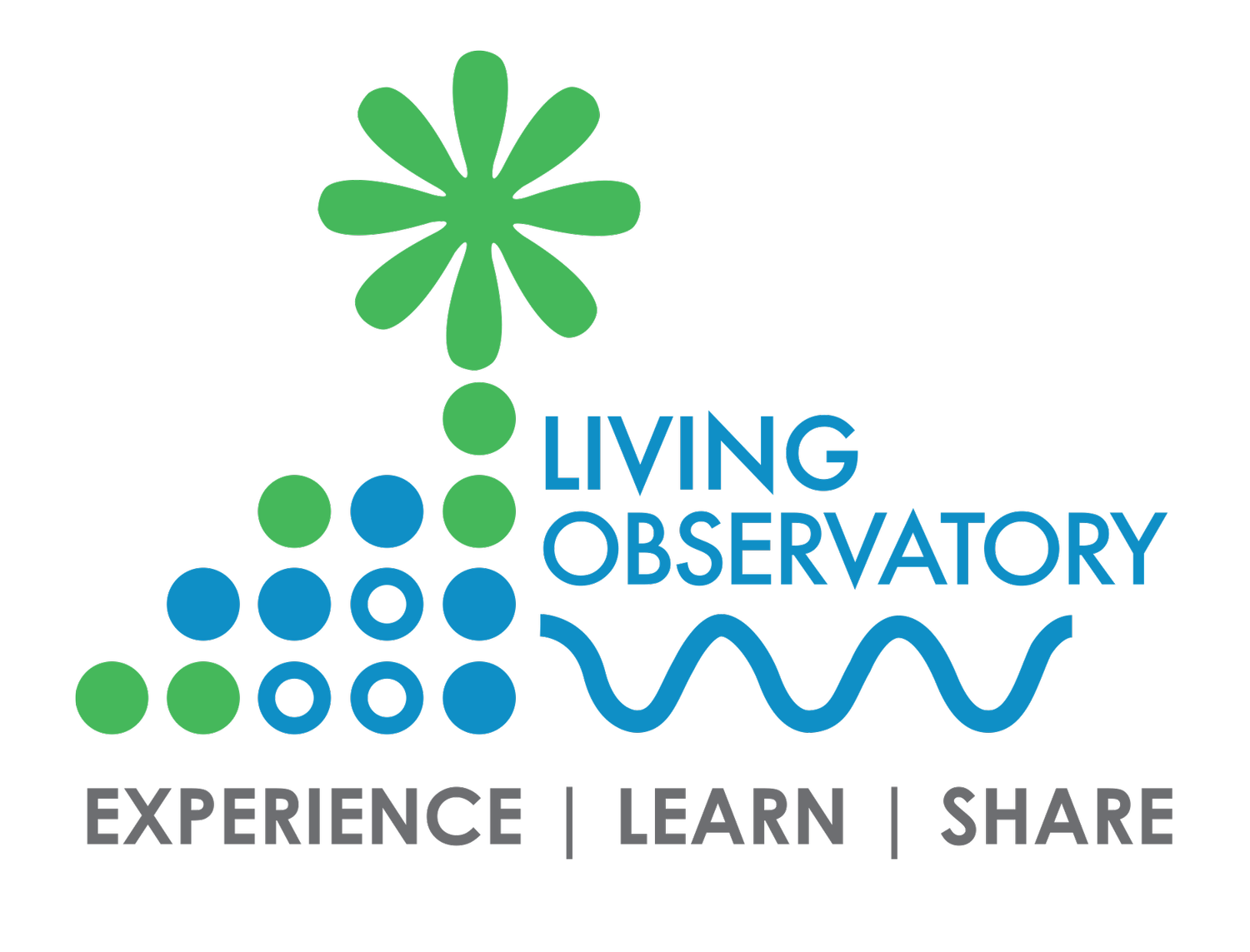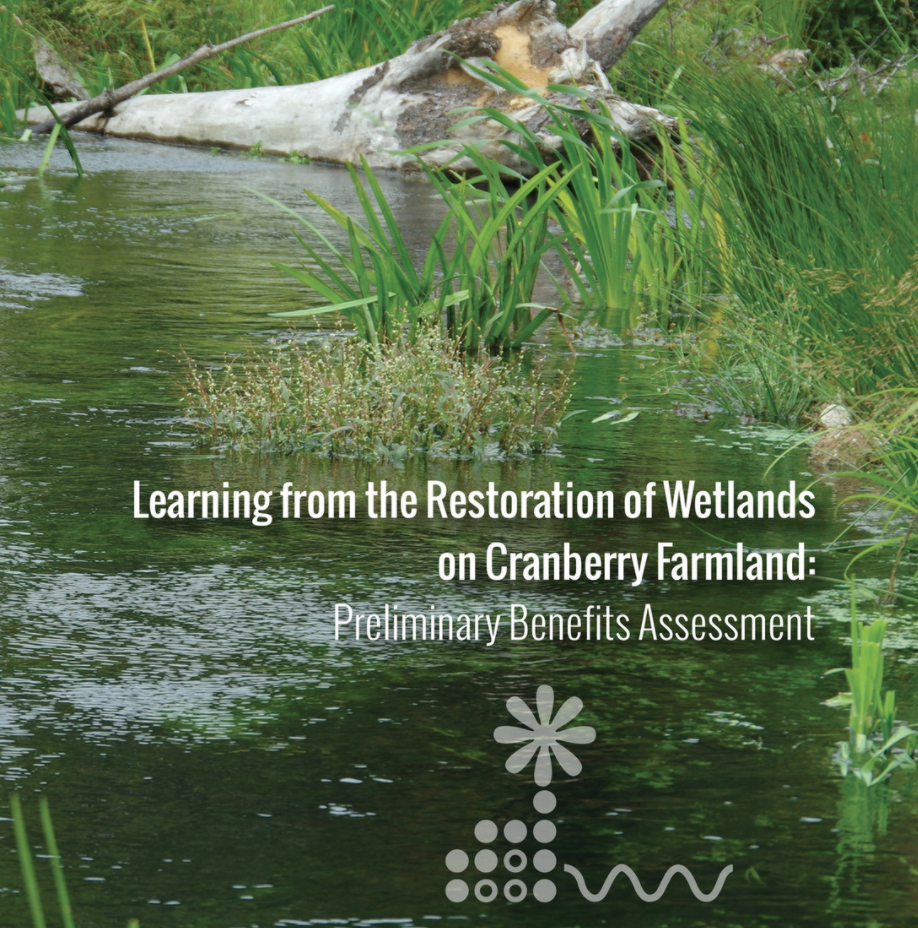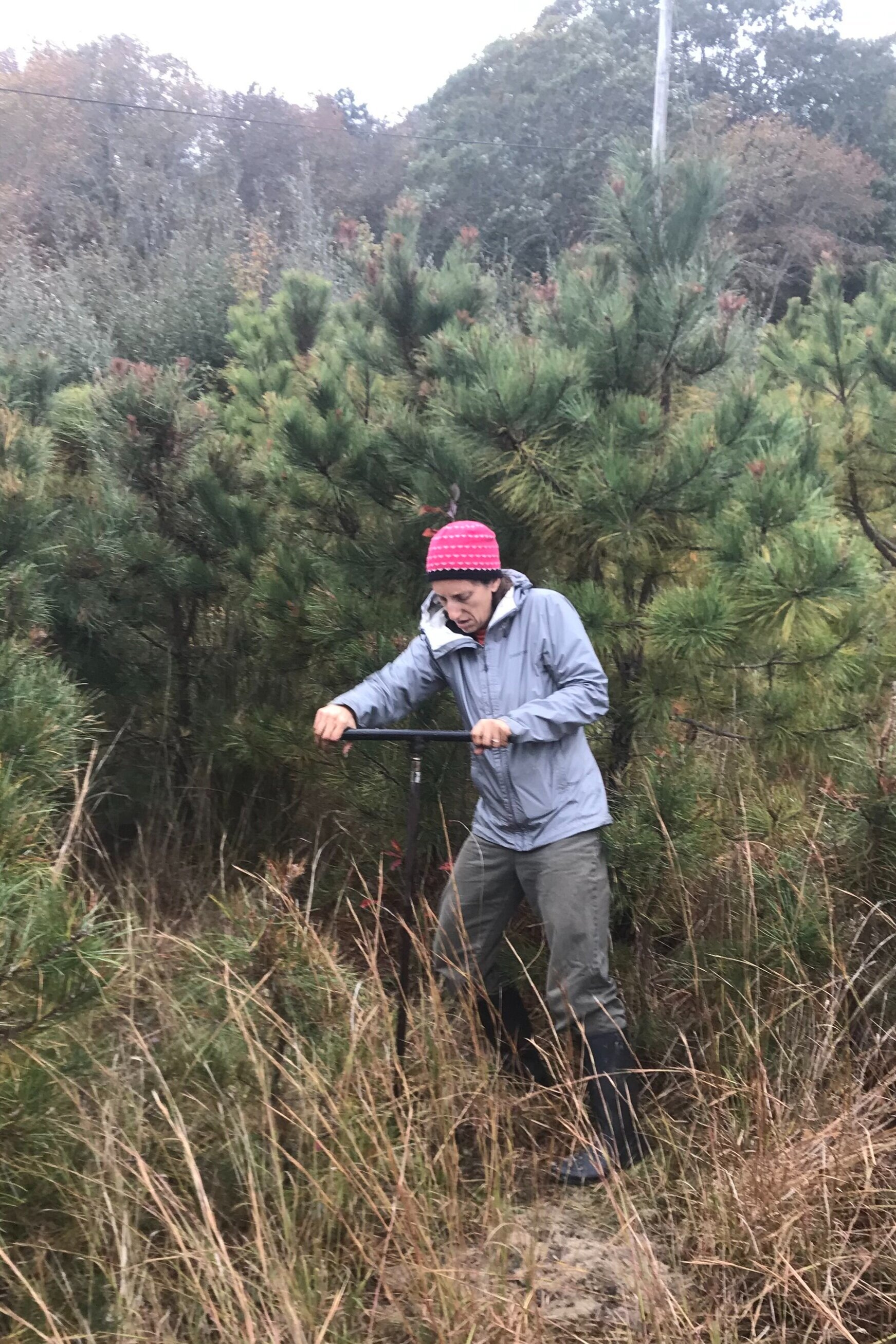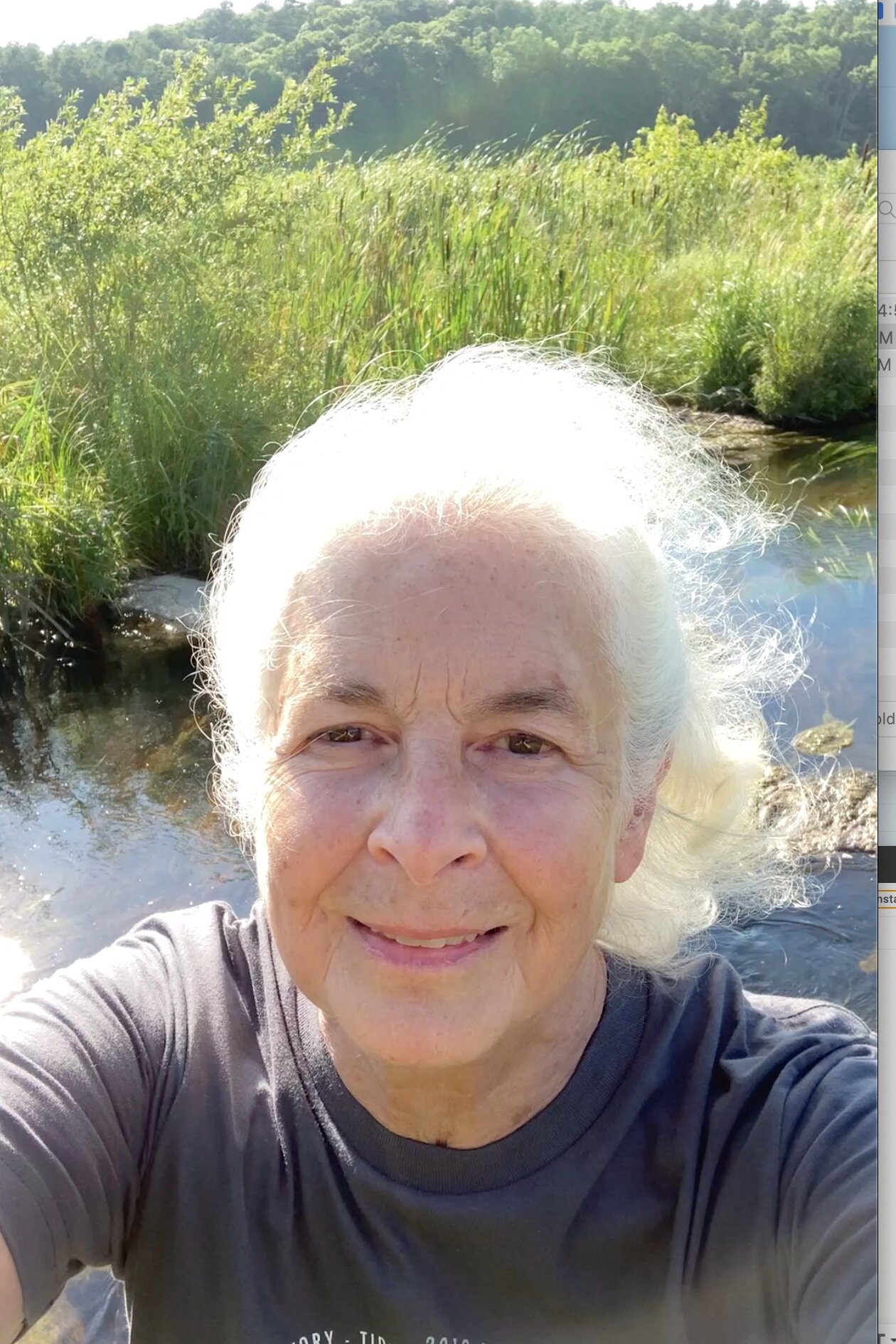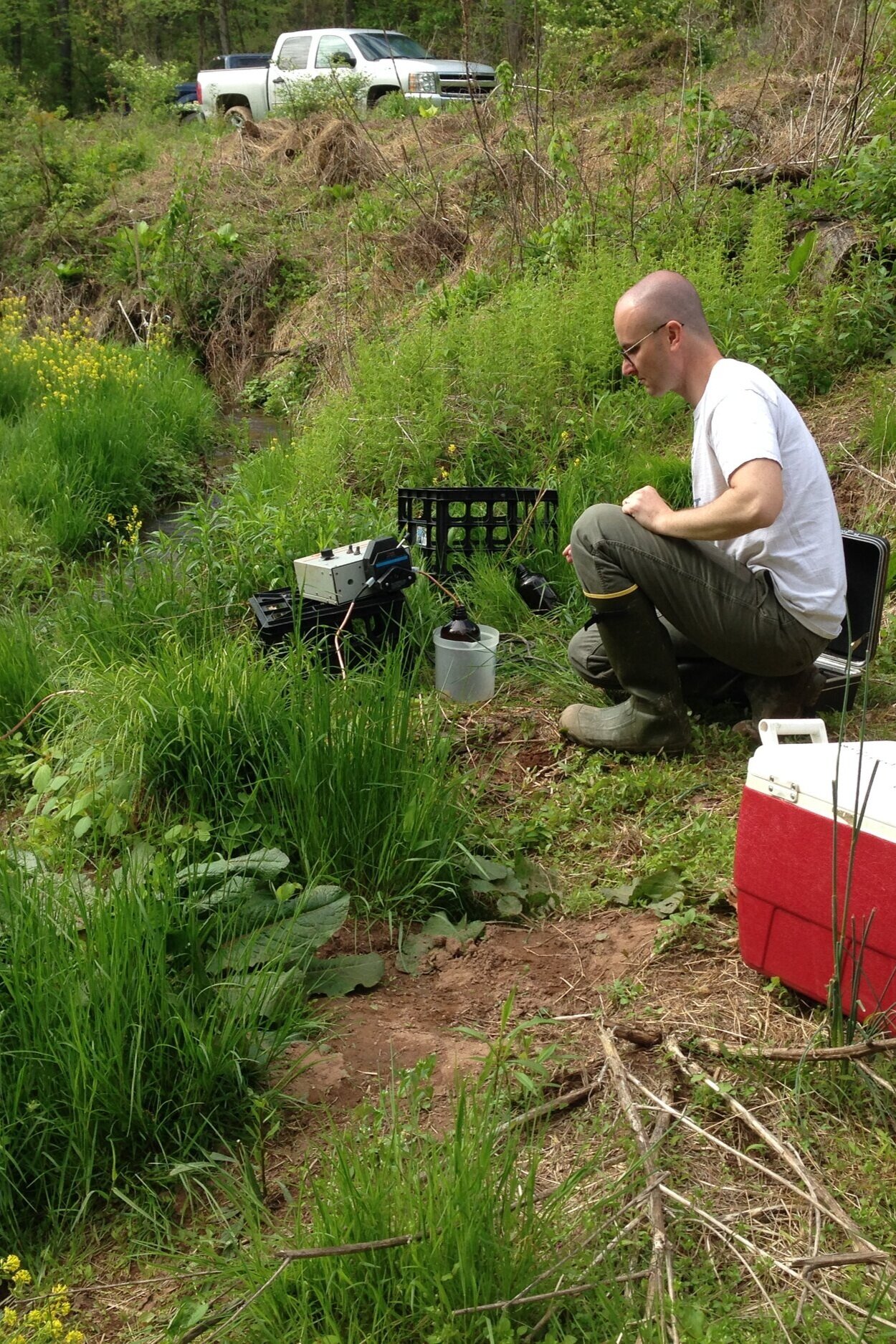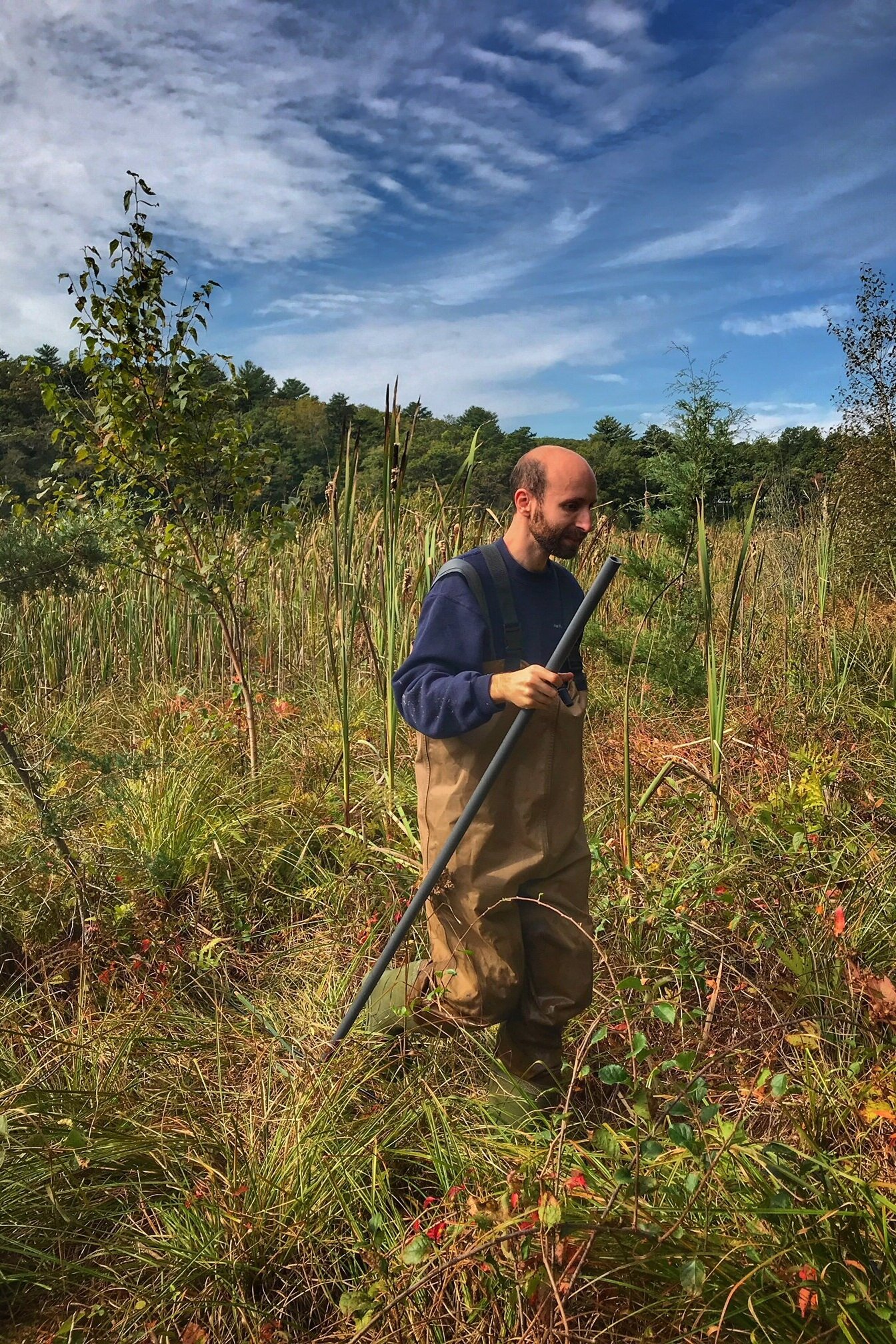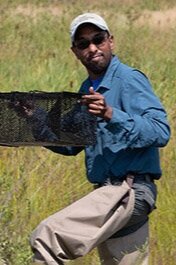Two centuries of cranberry farming transformed thousands of acres of natural wetlands into artificially elevated agricultural fields in Southeastern Massachusetts. Today, scientists understand that this transformation came at a high cost to the environment. Now that the economics of the cranberry industry have made it less advantageous to farm in the region, the time is right for policies and funding that encourage farmers to consider restoration.
There have been four such projects to date and LO scientists, artists, conservation and restoration practitioners have been tracking ecological changes. Acting as learning laboratories, the four projects have generated valuable data about the impact of restoration on the emergence of self-sustaining wetlands. In 2020, MA Fish and Game Division of Ecological Restoration’s Cranberry Bog Program commissioned a Preliminary Benefits Assessment of our findings.
Interested in learning more about Living Observatory?
The breadth and expertise of our research and community-based science work would not be possible without your contributions. We greatly appreciate your support.
About the Authors
Living Observatory (LO) is a public interest learning collaborative of scientists, artists, and wetland restoration practitioners engaged in the documenting, interpreting, and revealing the arc of change as it occurs prior to, during, and following the ecological wetland restoration on retired cranberry farms. This report is a culmination of 10 years of research with our community. While there were upwards of 20 universities, over a dozen federal and state agencies and 35 NGOs and engineering partners involved in the development of this report, a few authors were instrumental to the creation of this report.
Kate Ballantine is the founding director of the Restoration Ecology Program and the Marjorie Fisher Associate Professor of Environmental Studies at Mount Holyoke College. Her research uses restored ecosystems to learn about ecosystem processes and development.
Linda Deegan is an ecologist and Senior Scientist at the Woodwell Climate Research Center. She studies how ecosystems support the plants and animals that live there, and how human impacts disrupt these connections. She is particularly interested in aquatic ecosystems because of their importance in connecting landscape elements and habitats through the flows of water and nutrients through food webs that lead to fish.
Christine Hatch is Associate Extension Professor and Research-Extension Liaison for CAFE at the University of Massachusetts Amherst. Her hydrogeology work investigates the complex relationships between surface water and groundwater, as well as community and ecosystem resilience to river flooding, changes in water quality and quantity with climate change.
Sarah Klionsky
Sarah is a PhD student in the Department of Natural Resources and the Environment at the University of Connecticut. Her research focuses on vegetation and nitrogen responses to wetland restoration as well as trying to find linkages between the structure and functions of the restored systems.
Christopher Neill is an ecologist and Senior Scientist at the Woodwell Climate in Falmouth, MA. He studies the consequences of deforestation and agriculture, and approaches to biodiversity management and restoration Massachusetts. He oversees laboratory analyses for the Buzzards Bay Coalition's Baywatchers program that has been monitoring changes to water quality in since 1992.
Naomi Valentine
Naomi Valentine is the Ecological Restoration Team Lead for SWCA Environmental’ s Amherst office. Her focus is in ecological restoration, wetland mitigation, and ecological climate resilience. At UMass, she researched improved methods of wetland restoration success metrics in an effort to improve overall wetland restoration planning and implementation.
Glorianna Davenport
Glorianna is Founder and President of Living Observatory. She participated in the design and restoration at Tidmarsh as the property owner. Trained as a documentary filmmaker, she has visually documented all four wetland restoration projects, and worked closely with the team at the MIT Media Lab on the monitoring and to imagine public engagement with conservation and restoration projects.
Betsy Gladfelter
Betsy Gladfelter is the Falmouth Conservation Commissioner (since 2004), and a guest investigator at the Woods Hole Oceanographic Institution. Combining her interest in conservation and in how land use changes through time, for the past 11 years, she has led the Coonamessett River Restoration Project, and the Coonamessett Greenway Heritage Trail in Falmouth on Cape Cod.
Casey Kennedy is a Research Hydrologist at the U.S. Department of Agriculture - Agricultural Research Service. His research focuses on the nitrogen and phosphorus cycles within cranberry farms, and the interactions of nutrients between groundwater and surface water.
Brian Mayton
Brian Mayton is a Research Fellow with Living Observatory, formerly at the MIT Media Lab. He has developed wireless sensor networks that can document the transformation of former cranberry farms to natural wetlands. From live-streams of audio and video to continuous monitoring of a range of environmental metrics, these sensors expand the ways in which people experience wetlands restoration.
Thilina Surasinghe is an Associate Professor in conservation biology and landscape ecology at Bridgewater State University and a member of Fish Technical Working Group of National Ecological Observatory Network. His research includes conservation of aquatic and wetland herpetofauna, local and landscape scale drivers of their community structure, and biodiversity monitoring
